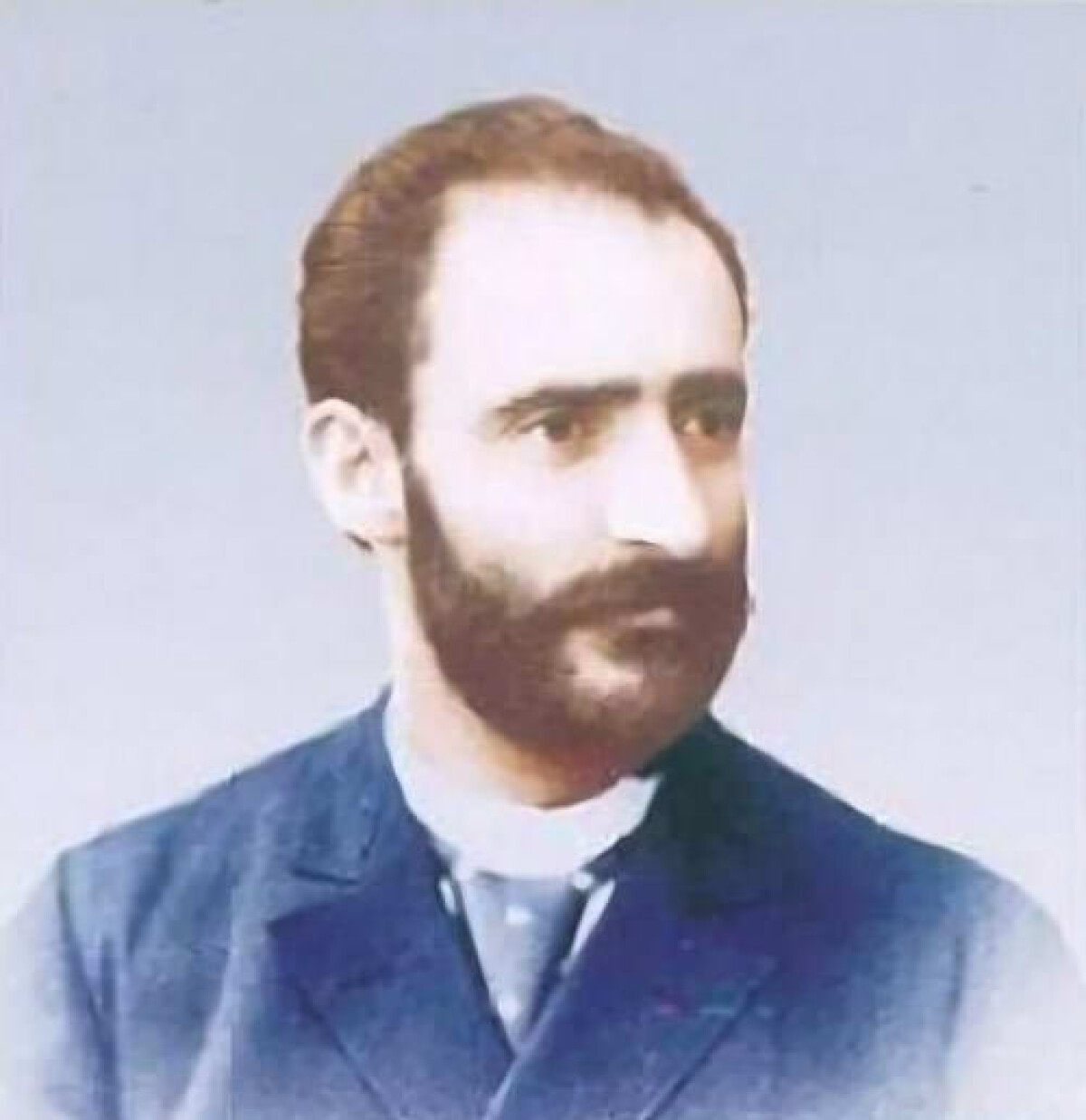Muratsan
Grigor Ter-Hovhannisian (December 1, 1854 – September 12, 1908), better known as Muratsan, was a prolific Armenian writer, known best for writing Gevorg Marzpetuni (1896), a historical novel set during the time of King Ashot II in Armenia in the tenth century.
Muratsan was born in the city of Shusha (Shushi) to a middle-class family. His father was a craftsman. Until the age of 12 Muratsan studied at a local private school. He was forced to cease his education due to his father's death. Two years later he enrolled in Shushi's diocese school, which he graduated in June 1873. In 1877 he traveled within Artsakh and researched much of the ancient ruins. Upon his return to Shushi he wrote the brief history of noble Hasan-Jalalyan family. In 1878 he moved to Tiflis, where he worked as a teacher and accountant and remained for the rest of his life. He became famous after the production of his historical drama "Ruzan," which was staged at a Tiflis theater in 1882. He was the author of many short stories and novels, including "The Apostle" (1902). An intensely nationalistic writer, Muratsan was a nineteenth-century romantic in style and an advocate of traditional cultural and religious values.
There is currently a library, a street, and a school are named after him in Armenia and the Republic of Nagorno-Karabakh.
"Ruzan" is a historical drama, which takes place in the thirteenth century during the Mongol-Tatar invasions. Ruzan was the daughter of prince Hasan-Jalal Dawla. Faced with the choice of conversion and death, she refuses to betray her countrymen and her religion and as a consequence is executed.
Muratsan's "There will come a spring with a single flower" is a widely known saying, which means that even a single man is capable of a radical change.
Share:









